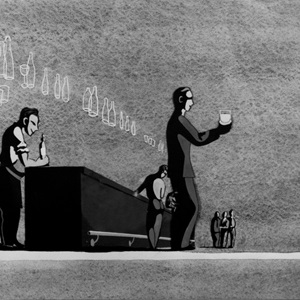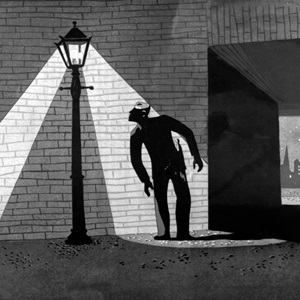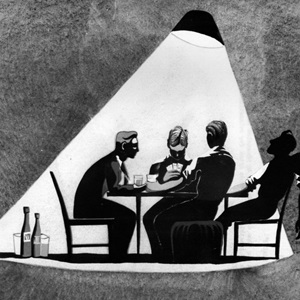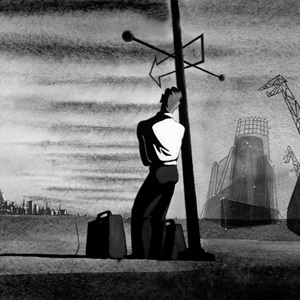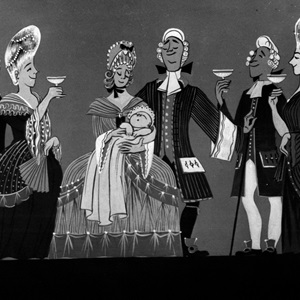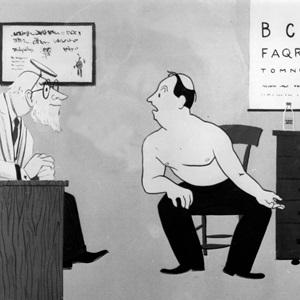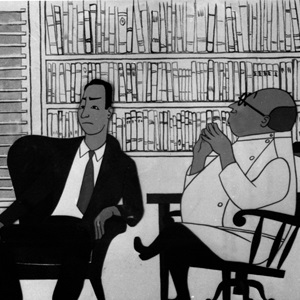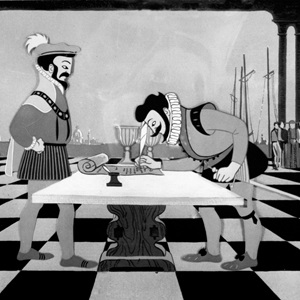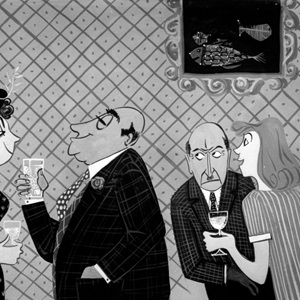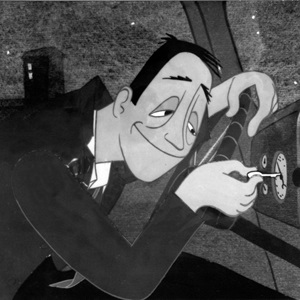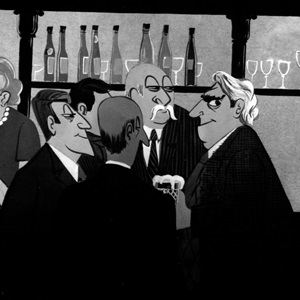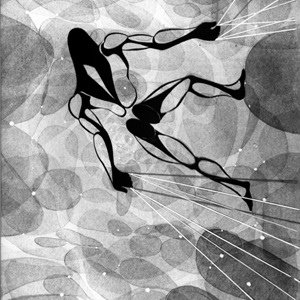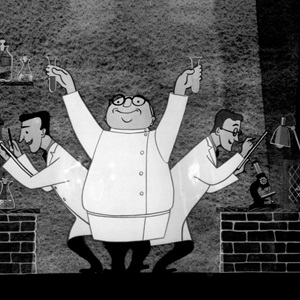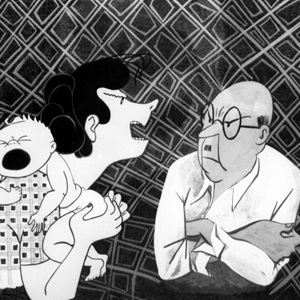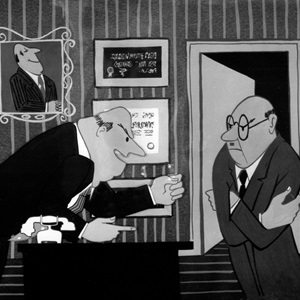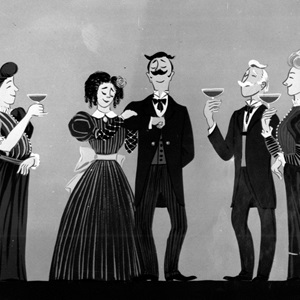Governance of alcohol

WHO Governing bodies processes on alcohol
Alcohol has been discussed and decided on in WHO since 1951
During the Sixty-third session of the World Health Assembly, held in Geneva in May 2010, the 193 Member States of WHO reached an historical consensus on a global strategy to reduce the harmful use of alcohol by adopting resolution WHA63.13. The adopted resolution and endorsed strategy gives guidance to both Member States and to the WHO Secretariat on ways to reduce the harmful use of alcohol.
On this page you will find information about the political process that led to the endorsement of the strategy as well as processes that proceeded and succeeded the strategy process. Please note that this overview does not include processes on harmful use of alcohol under the NCD framework. You can read more about harmful use of alcohol as a risk factor for NCDs here.
Ongoing: WHO to accelerate action to reduce the harmful use of alcohol
Assignment given to the WHO Secretariat by the WHO Executive Board
In 2020, during the 146th session of the WHO Executive Board, the Board in its decision EB146 (14) called for accelerated action to reduce the harmful use of alcohol and requested the WHO Director-General, inter alia, to develop an action plan (2022-2030) to effectively implement the Global strategy to reduce the harmful use of alcohol as a public health priority, and to develop a technical report on the harmful use of alcohol related to cross-border alcohol marketing, advertising and promotional activities, including targeting youth and adolescents, as well as to adequately resource the work on the harmful use of alcohol.
You can read more about the process the WHO Secretariat is following to develop the draft action plan as requested In decision EB146 (14) here.
2019: Implementation of WHO’s global strategy to reduce the harmful use of alcohol during the first decade since its endorsement, and the way forward
Assignment given to the WHO Secretariat by the World Health Assembly
Paragraph 3.d of decision WHA72(11) requests the WHO Director-General to “to report to the Seventy-third World Health Assembly in 2020, through the Executive Board, on the implementation of WHO’s global strategy to reduce the harmful use of alcohol during the first decade since its endorsement, and the way forward”. During the discussions at the 72nd World Health Assembly, the WHO Director-General committed that “the report will be elaborated in full consultation and engagement with Member States” and requested that this be reflected accordingly in the official records.
In response to decision WHA72(11), the process which the WHO Secretariat followed to develop the report was as follows:
- 27-28 June 2019: Discussions during the Second WHO Forum on alcohol, drugs and addictive behaviours (Geneva, 27-28 June 2019) with Member States, NGOs and academic institutions on the implementation of the WHO Global strategy to reduce the harmful use of alcohol;
- 1 July – 15 September 2019: Data collection from Member States (through WHO Regional and Country Offices) on the implementation of the WHO Global strategy to reduce the harmful use of alcohol (within the framework of the Global survey on progress towards SDG target 3.5);
- 15 September – 15 October 2019: Regional consultations with Member States on the implementation of the WHO global strategy to reduce the harmful use of alcohol since its endorsement, and the way forward, and validation of country information collected through the above-mentioned survey;
- 30 September 2019: WHO Secretariat submitted a preliminary report on the implementation of WHO’s global strategy to reduce the harmful use of alcohol during the first decade since its endorsement, and the way forward, to WHO Governing Bodies Secretariat (GBS) summarizing the findings until 30 September 2019;
- 15 October – 21 October 2019: WHO Secretariat developed a discussion paper on the implementation of the WHO global strategy to reduce the harmful use of alcohol since its endorsement, and the way forward;
- 21 October – 4 November 2019: Web-based consultation on a discussion paper dated 21 October 2019 on the implementation of the WHO global strategy to reduce the harmful use of alcohol since its endorsement, and the way forward. The web-based consultation was open to Member States, UN organizations and other international organizations, and non-State actors. All relevant feedback received was published on the website;
- 11 November 2019: Informal consultation with Member States on the discussion paper dated 21 October 2019;
- 12 November 2019: WHO Secretariat summited an Addendum 1 on the implementation of WHO’s global strategy to reduce the harmful use of alcohol during the first decade since its endorsement, and the way forward, to WHO Governing Bodies Secretariat (GBS) summarizing the findings between 30 September 2019 and 14 November 2019;
- 3-8 February 2020: The 146th session of the WHO Executive Board considered the report of the WHO Director-General on the implementation of WHO’s global strategy to reduce the harmful use of alcohol during the first decade since its endorsement, and the way forward, and will its decision EB146 (14) called for accelerated action to reduce the harmful use of alcohol.
2008 - 2010: Outline of the process that led to the WHO Global strategy to reduce harmful use of alcohol
During the Sixty-third session of the World Health Assembly, held in Geneva in May 2010, the 193 Member States of WHO reached an historical consensus on a global strategy to reduce the harmful use of alcohol by adopted resolution WHA63.13. The adopted resolution and endorsed strategy gives guidance to both Member States and to the WHO Secretariat on ways to reduce the harmful use of alcohol.
The drafting of the strategy was mandated in resolution WHA61.4 from 2008 and the drafting process involved the following activities and timeline:
Stage I: Broad consultation process3 October - 15 November 2008:
Web-based consultation (WHO public hearings) with Member States and other stakeholders on ways of reducing harmful use of alcohol. Download all submission here.
6. November 2008:
Roundtable meeting with economic operators.
Meeting report.
24-25 November 2008:
Roundtable meeting with NGOs and health professionals on ways they could contribute to reducing harmful use of alcohol.Meeting report.
8 September 2009:
Consultation with intergovernmental organizations.
Meeting report.
Stage II: Draft strategy development for consideration by the WHO Executive Board in January 2010 and presentation to World Health Assembly in May 2010
February - May 2009:
WHO regional technical consultations with Member States took place in all six WHO regions to ensure the effective collaboration with Member States on developing a draft global strategy to reduce harmful use of alcohol. Ongoing national and sub-regional processes, national needs, priority areas for global actions and coordination was discussed, as well as examples of best practices with special emphasis on at-risk populations, young people and those affected by the harmful drinking of others.
May - August 2009:
The WHO Secretariat produced and sent out to Member States for their feedback a working document for developing a draft global strategy to reduce harmful use of alcohol. The working document is based on the outcomes of the regional consultations with Member States and consultative process with other stakeholders and contains relevant background information, as well as a proposed vision, objectives and target areas for action by Member States.
An informal consultation with Member Status took place 8 October 2009 in Geneva to discuss feedback from Member States on the working document in continuation of the consultation and collaboration process with Member States on developing a draft global strategy to reduce harmful use of alcohol.
October - November 2009:
Preparation of the draft of the global strategy on harmful use of alcohol to be included in the documentation for the 126th Executive Board meeting to be held in January 2010. A draft global strategy was annexed to the Report by the Secretariat. The documentation also contained an evidence annex.
18–23 January 2010: Executive Board 126th Session
At its 126th session in January 2010 the Executive Board discussed the draft global strategy to reduce harmful use of alcohol that had been prepared on the basis of available evidence and the outcomes of consultations with Member States and stakeholders, and in collaboration with Member States, as requested in resolution WHA61.4. The Board adopted resolution EB126.R11 in which it recommended the World Health Assembly to endorse the global strategy. The draft global strategy presented to the World Health Assembly was amended in the light of comments made by the Board.
17–22 May 2010: Sixty-third World Health Assembly
The Health Assembly considered the draft resolution contained in resolution EB126.R11, which endorses a draft global strategy to reduce harmful use of alcohol. Strategies to reduce the harmful use of alcohol was item 11.10 on the provisional agenda. For the first time, delegations from all 193 Member States of World Health Organization reached consensus at the World Health Assembly on a strategy to confront the harmful use of alcohol and adopted resolution WHA63.13.
2004 - 2008: Public health problems caused by harmful use of alcohol
Governing body processes
EB115.R5: Executive Board 115. (2005). Public health problems caused by harmful use of alcohol.
WHA58.26: World Health Assembly, 58. (2005). Public-health problems caused by harmful use of alcohol.
A60/14: World Health Assembly, 60. (2007). Evidence-based strategies and interventions to reduce alcohol-related harm: report by the Secretariat and A60/14 Add.1
EB122.R2: Executive Board, 122. (2008). Strategies to reduce the harmful use of alcohol.
Activities following the 2005 WHA resolution.
- Open informal consultation on alcohol production and distribution data (19-20 February 2008)
- WHO Expert Committee on Problems Related to Alcohol Consumption (10-13 October 2006)
- Meeting with stakeholders on health problems related to alcohol consumption (9 October 2006)
- WHO is seeking views and opinions of stakeholders on health problems related to alcohol consumption (15 September 2006)
- Meeting with representatives of nongovernmental organizations and professional associations (24-25 April 2006)
- Open consultations with representatives of alcohol industry, agricultural and trade sectors (8 March 2006)
1951 - 2020: WHO governing bodies documents on alcohol
Below are links to key governing bodies documents on alcohol. Please note that important documents on alcohol has been part of NCD action plan process from 2011 to 2020. These documents are currently not included in the overview below.
World Health Assembly decisions and resolutions
1975
WHA28.81
Health statistics related to alcohol
1979
WHA32.40
Development of the WHO programme on alcohol-related problems
1983
WHA36.12
Alcohol consumption and alcohol-related problems: development of national policies and
programmes
1987
WHA40.32
Use of alcohol in medicines
1989
WHA42.20
Prevention and control of drug and alcohol abuse
2004
WHA57.16
Health promotion and healthy lifestyles
2005
WHA58.26
Public-health problems caused by harmful use of alcohol
2007
WHA60(10)
Evidence-based strategies and interventions to reduce alcohol-related
2008
WHA61.4
Strategies to reduce the harmful use of alcohol
2010
WHA63.13
Global strategy to reduce the harmful use of alcohol
Reports to the World Health Assembly
1979
A32/11
Development of WHO programme on alcohol-related problems (including health statistics related
to alcohol)
1982
A35/Technical Discussions/1
Background document for reference and use at the technical discussions on "Alcohol consumption and alcohol-related
problems: development of national policies and programmes"
A35/Technical Discussions/2
Arrangements
for technical discussions at the thirty-fifth World Health Assembly
A35/Technical Discussions/3
Selected documents and publications on alcohol consumption and alcohol
problems produced by, or in collaboration with, WHO
A35/Technical Discussions/4
Alcohol-related problems and their effects on social and economic development in
the world
A35/Technical Discussions/5
Exhibition illustrating: "Alcohol consumption and alcohol-related problems"
A35/Technical Discussions/6
Alcohol consumption and alcohol-related problems: development of national policies and programmes: report on technical discussions
A35/Technical Discussions/7
Alcohol consumption and alcohol-related problems: development of national policies and programmes: further considerations
1985
A38/Inf.Doc./4
Alcohol consumption and alcohol-related problems
1989
A42/Technical Discussions/4
The health of youth: facts for action: youth and alcohol
1992
A45/7
Prevention and control of drug and alcohol abuse: progress report by the Director-General
2005
A58/18
Public health problems caused by harmful use of alcohol: report by the Secretariat
2007
A60/14
Evidence-based strategies and interventions to reduce alcohol-related harm:
report by the Secretariat
A60/14 Add.1
Evidence-based strategies and interventions to reduce alcohol-related harm:
global assessment of public-health problems caused by harmful use of alcohol
2008
A61/13
Strategies to reduce the harmful use of alcohol: report by the Secretariat
2010
A63/13
Strategies to reduce the harmful use of alcohol: draft global strategy: report by the Secretariat
Records from the World Health Assembly
2005
WHA58/2005/REC/3
Fifty-eighth World Health Assembly, Geneva, 16-25 May 2005: summary records of
committees: reports of committees
2007
WHA60/2007/REC/3
Sixtieth World Health Assembly, Geneva, 14-23 May 2007: summary records of committees:
reports of committees
2008
WHA61/2008/REC/3
Sixty-first World Health Assembly, Geneva, 19-24 May 2008: summary records of
committees: reports of committees
2010
WHA63/2010/REC/3
Sixty-third World Health Assembly: Geneva, 17-22 May 2010: summary records of committees:
reports of committees
WHO Executive Board decisions and resolutions
1952
EB9.R48
Alcoholism Sub-Committee of the Expert Committee on Mental Health: report on second session
1954
EB13.R14
Expert Committee on Alcohol: first report
1983
EB71.R7
Alcohol consumption and alcohol-related problems: development of national policies and
programmes
1987
EB79.R17
Use of alcohol in medicines
1989
EB83.R10
Prevention and control of drug and alcohol abuse
2004
EB113.R2
Health promotion and healthy lifestyles
2005
EB115.R5
Public health problems caused by harmful use of alcohol
2008
EB122.R2
Strategies to reduce the harmful use of alcohol
2010
EB126.R11
Strategies to reduce the harmful use of alcohol
2020
EB146(14)
Accelerating action to
reduce the harmful use of alcohol
Reports to WHO Executive Board
1951
EB8/22
Alcoholism Sub-Committee of the Expert Committee on Mental Health: report on session
EB9/23
Expert Committee on Mental Health (alcoholism): report on second session
1953
EB13/10
Expert Committee on Alcohol: first report
1954
EB15/21
Joint meeting of the Expert Committee on Mental Health and on Alcohol: first report
1978
EB63/23
Alcohol-related problems: the need to develop further the WHO initiative: report by the
Director-General
1979
EB63.R30
Development of WHO programme on alcohol-related problems
1980
EB67/3
Expert committee meetings: report by the Director-General
1984
EB75/INF.DOC./7
Alcohol consumption and alcohol-related problems
1986
EB79/9
Use of alcohol in medicines: report by the Director-General
1991
EB89/16
Prevention and control of drug and alcohol abuse: progress report by the Director-General
2005
EB115/37
Public health problems caused by alcohol: report by the Secretariat
2007
EB121/10
Expert committees and study groups: report by the Secretariat
2010
EB126/13
Strategies to reduce the harmful use of alcohol: draft global strategy: report to the Secretariat
2013
EB132/42
Progress reports: report by the Secretariat
Records from WHO Executive Board
2005
EB115/2005/REC/2
Executive Board 115th session, Geneva 17-24 January 2005: summary records
2008
EB122/2008/REC/2
Executive Board 122nd session, Geneva, 21-25 January 2008: summary records
2010
EB126/2010/REC/2
Executive Board 126th session, Geneva, 18-23 January 2010: summary records
Expert Committee Reports
Second report: WHO Expert Committee on Problems Related to Alcohol Consumption
Health promotion in the workplace: alcohol and drug abuse, report of a WHO expert committee
Problems related to alcohol consumption : report of a WHO expert committee
Services for the prevention and treatment of dependence on alcohol and other drugs: fourteenth report on the WHO Expert Committee on Mental Health
Alcohol and alcoholism: report of an Expert Committee
Expert Committee on Alcohol: first report (1954)
Expert Committee on Mental Health, Alcoholism Subcommittee: second report
Expert Committee on Mental Health: report on the first session of the Alcoholism Subcommittee
Alcohol in 1954: "To Your Health"
"To Your Health" is a film produced by the World Health Organization. It is based upon the publications of a 1954 WHO Expert Committee on Alcohol and Alcoholism and presents a number of facts to encourage objective discussion of the problems of alcohol and alcoholism and to contribute to public understanding. It shows in cartoon form the action of alcohol on the human body, the relationship of the custom of drinking to historical and cultural factors in society, and it includes a description of the onset of the disease of alcoholism as it occurs in some individuals. The film pronounces no judgement and makes no recommendations as to the action required to solve this public health problem but leaves this question open to individual audiences to consider and discuss. Here are some still shots from the film.

